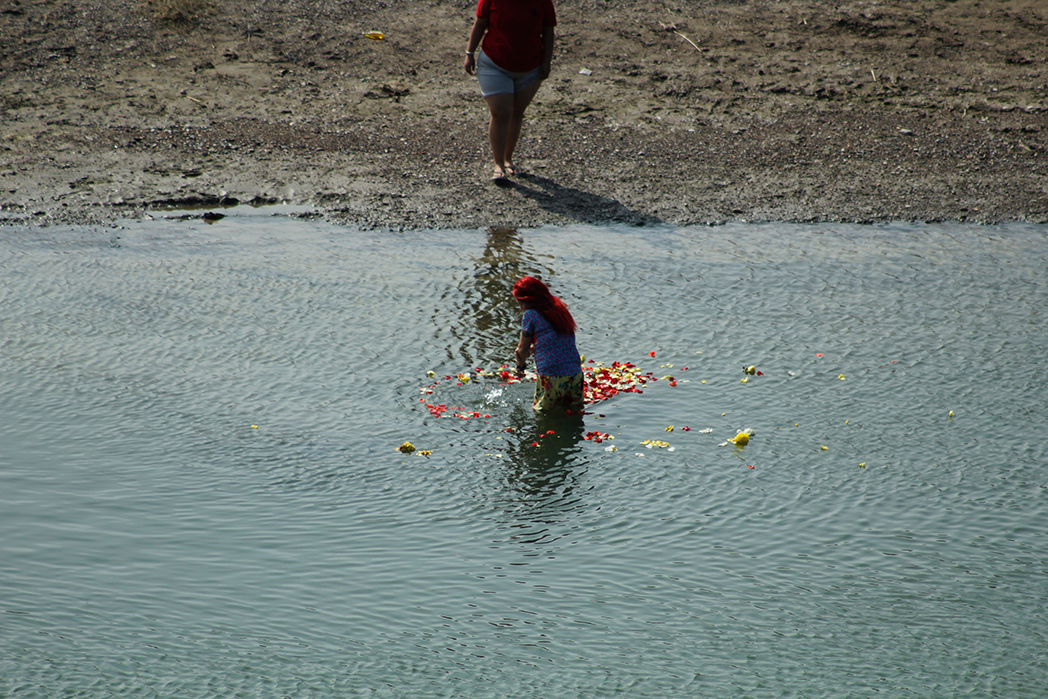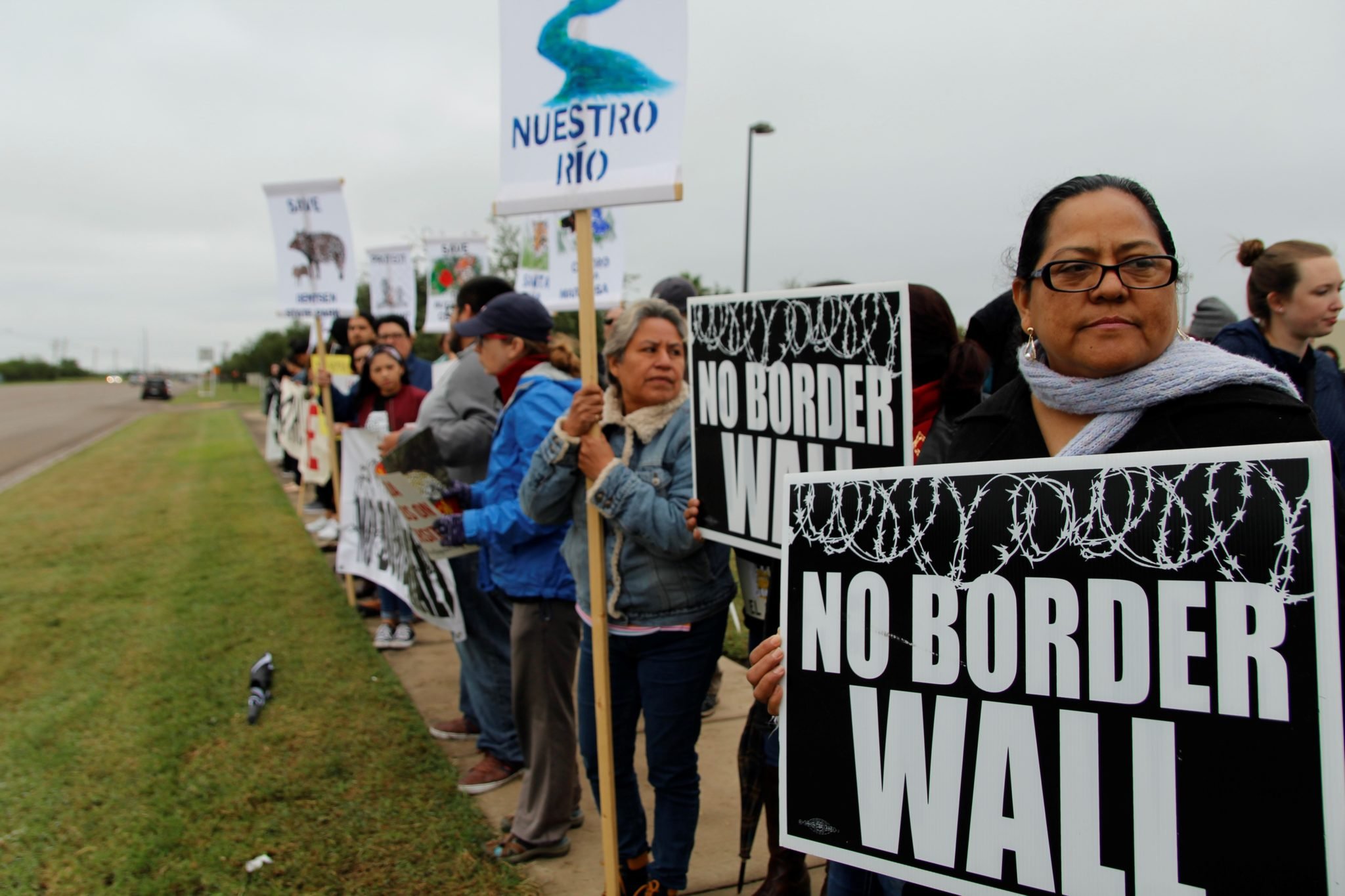Right now in Eagle Pass, Texas, U.S. border agents are searching for a 3-year-old boy who went missing when he and his mother attempted to cross the Rio Grande. Both were swept away by the currents. The mother’s body was recovered. The toddler disappeared.
The little boy is now one of more than 5,500 people who have disappeared crossing the U.S.-Mexico border since 1994, when Operation Gatekeeper reoriented U.S. border strategy toward hyper-militarization. Many more thousands have been found dead. These terrible and heartbreaking losses are a direct result of “prevention through deterrence” policies that disregard human rights and push desperate people further into dangerous wilderness and swift currents.
On August 30, border residents will honor those who have disappeared crossing the U.S.-Mexico border on the International Day of the Disappeared, a day that commemorates the lives of those who have gone missing throughout the world. By holding space for them on the Day of the Disappeared, we are reminding people that real lives are lost due to the decades-long militarization of the southern border. We must continue to honor their memory by enacting policies that prioritize human rights in border governance, and provide immediate aid, rescue, and recovery to those in need.

The southern border spans a diverse region from San Diego to Brownsville, Texas. Every day, about 1 million people cross the southern border through ports of entry. Most of those crossings are border residents traveling to work, shop, or visit family and friends on the other side of the border. For us, who live and work in border communities, crossing the border is a staple in our pursuit of happiness. And for communities of the Texas-Mexico border, the Rio Grande is the lifeblood of our region. We couldn’t build our lives here without it.
Yet the courage, hopes, and dreams of our migrant brothers and sisters are extinguished almost daily in the waters of the Rio Grande or soon thereafter in the harsh Texas brush.
Those who risk everything for a chance to live in peace are met at our border with militarization and criminalization. These deadly border policies push desperate families hoping for protection into dangerous wilderness, perilous mountains, or swift river currents.
By now, most have seen the chilling photo of 25-year-old Oscar Alberto Martinez Ramirez and his almost two-year-old daughter, Valeria Martinez, who drowned in the river near Brownsville in late June.
Since then we’ve learned of Guatemalan mother, Maria Juan, and her 5-year-old daughter, Ashly Francisco, who drowned in irrigation canals swollen from heavy rain near El Paso. A mother, two infants, and a toddler from Guatemala died of dehydration and exposure after crossing the river near McAllen. The 2-year-old daughter of a Haitian woman went missing when the two attempted to cross the river near Del Rio, Texas.
These are just the cases involving small children. The deaths and disappearances of teens and adults are so common that they rarely garner media attention.
Humans have crossed through what is now the southwest United States for millennia. By contrast, the current deadly approach to governing our southern border is only 25 years old.
Because of Operation Gatekeeper’s harsh enforcement-only policies, the flow of migration shifted eastward from San Diego to more dangerous terrain. Since then, the addition of thousands more border agents (almost 20,000 in all) and interior checkpoints have channeled migrants to the most treacherous crossing points along the southern border.
The Rio Grande Valley is seeing the latest iteration of this deadly playbook. Congress’ funding under the Trump administration of more border walls in Hidalgo and Starr counties will only increase the danger to migrants crossing through our region. The Rio Grande Valley sector is already one of the deadliest places to cross the border.

Our southern border should be a well of hope and possibility for all. But for good border governance to replace our current approach of militarization and criminalization, we need a new border vision. That is why in collaboration with Southern Border Communities Coalition, we are advocating for a system that responds to all people who come to our borders in an effective and humane way—one that takes a whole-of-government and whole-of-society approach.
To honor the thousands of people who have crossed the southern border to reunite with their families to build new lives, to escape violence and to seek life-sustaining medical care, we are working to create a new vision for the future of our southern border, one that reflects the humanity, compassion, and strength of the residents who live there. A welcoming border is one in which we recognize that migration is a human right and a critical part of global citizenship. A welcoming border would celebrate the unique cultural diversity of the border space so that the ancestral vibrancy of all residents would be visible. A welcoming border is a safer border for all residents because when we welcome all residents we then work to keep all of them equally safe.
On this International Day of the Disappeared, let’s remember our lost loved ones and honor the courage and tenacity of people who against all odds cross borders in pursuit of rights and opportunities. Let us commit ourselves to ending the 25-year-long strategy and put in its place a new border vision that expands public safety, protects human rights, and welcomes all people to our region and our nation. Together let us work towards a brighter future for the borderlands, one that is filled with vibrancy, compassion, humanity, and the free movement of ideas, culture, and life.
Christina Patiño Houle is the Network Weaver for the Rio Grande Valley Equal Voice Network. The RGV EVN is a coalition of nine nonprofits working to advance equity and immigrant rights in the region since 2009.
John-Michael Torres is Communications Coordinator for immigrant-rights organization La Union del Pueblo Entero, founded by farmworker leader Cesar Chavez.
Read more from the Observer:
-
‘Even the Police Officers Were Laughing at Me’: Transgender Immigrants Share Their Experiences of Abuse and Neglect in Detention: Transgender migrants endure violence and abuse in their home countries. For some, life in detention is even tougher.
-
Republicans Come to Texas to Prepare for the 2021 Redistricting Battle: The right has an audacious plan to, once again, use the redistricting process to maintain power.
-
Molly Ivins on Climate Change Deniers: “One theory of government is that it only reacts to a crisis; trouble comes when we cannot even agree on what a crisis is,” Ivins wrote in a 1995 column about Congress’ lukewarm response to the threat of global warming.







